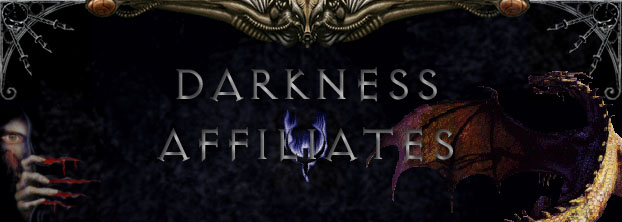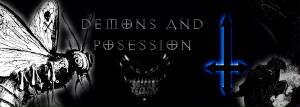


 |
|||||
|
|||||
|
|
|||||||||||||||||||||||||||||||||||||||||||||||||||||||||||||||||||||||||||||||||||||||
|
In Scripture and in Catholic theology this word has come to mean much the same as devil and denotes one of
the evil spirits or fallen angels. And in fact in some places in the New Testament where the Vulgate, in agreement with the
Greek, has daemonium, our vernacular versions read devil. The precise distinction between the two terms in ecclesiastical
usage may be seen in the phrase used in the decree of the Fourth Lateran Council. "Diabolus enim et alii daemones"
(The devil and the other demons), i.e. all are demons, and the chief of the demons is called the devil. This distinction is
observed in the Vulgate New Testament, where diabolus represents the Greek diabolos and in almost every instance
refers to Satan himself, while his subordinate angels are described, in accordance with the Greek, as daemones or daemonia
This must not be taken, however, to indicate a difference of nature; for Satan is clearly included among the daemones
in James 2:19 and in Luke 11:15-18. But though the word demon is now practically restricted to this sinister sense,
it was otherwise with the earlier usage of the Greek writers. The word, which is apparently derived from daio "to divide"
or "apportion", originally meant a divine being; it was occasionally applied to the higher gods and goddesses, but was more
generally used to denote spiritual beings of a lower order coming between gods and men. For the most part these were beneficent
beings, and their office was somewhat analogous to that of the angels in Christian theology. Thus the adjective eydaimon
"happy", properly meant one who was guided and guarded by a good demon. Some of these Greek demons, however, were evil and
malignant. Hence we have the counterpart to eudamonia "happiness", in kakodaimonia which denoted misfortune,
or in its more original meaning, being under the possession of an evil demon. In the Greek of the New Testament and in the
language of the early Fathers, the word was already restricted to the sinister sense, which was natural enough, now that even
the higher gods of the Greeks had come to be regarded as devils.
We have a curious instance of the confusion caused by the ambiguity and variations in the meaning of the word, in the case
of the celebrated "Daemon" of Socrates. This has been understood in a bad sense by some Christian writers who have made
it a matter of reproach that the great Greek philosopher was accompanied and prompted by a demon. But, as Cardinal Manning
clearly shows in his paper on the subject, the word here has a very different meaning. He points to the fact that both Plato
and Xenophon use the form daimonion, which Cicero rightly renders as divinum aliguid, "something divine". And
after a close examination of the account of the matter given by Socrates himself in the reports
transmitted by his disciples, he concludes that the promptings of the "Daemon" were the dictates of conscience, which
is the voice of God.
It may be observed that a similar change and deterioration of meaning has taken place in the Iranian languages in the case
of the word daeva. Etymologically this is identical with the Sanskrit deva, by which it is rendered in Neriosengh's
version of the Avesta. But whereas the devas of Indian theology are good and beneficent gods, the
daevas of the Avesta are hateful spirits of evil
Demon possession - that is, a human who has become inhabited or "taken over" by a demon and who cannot, consequently, exercise
his own will. There is little doubt that most of what was described in older times as "demon possession" would today be diagnosed
as some sort of mental illness, and treated accordingly. Nevertheless, a few cases of possession do seem to crop up
from time to time, and the Roman Catholic Church does continue to perform exorcisms. The Syptoms of Demonic Posssion are: See the movie: The Exorcist |
Acham - the demon of Thursday. Alrinach - demon of shipwrecks. Alocer - demon of astrology Any - the presiding demon of Hell. Anamalech - the demon of bad news. Andras - the demon of discord. Aquiel - the demon of Sunday. Arachula - evil spirit in the air. Ardad - demon that leads travelers astray. Ascaroth - demon of spies and informers. Asmodeus - mentioned in the Book of Tobias; Asmodeus is "The Destroyer." Astaroth - one of the Chief Devils, sometimes spelled as Ashtaroth. Astarte is its
female. Baal - one of the Great Demons. Also given as Baalim. Bechard - the demon of tempests. Bechet - the demon of Friday. Behemoth - the demon of animal strength. Belial - demon of the Sidonians. Beelzebub - one of the Princes of Hell. Belphegor. Braathwaate - demon of Ignorance. Bucon - the demon of Hatred. Byleth - one of the Kings of Hell. Cheitan - demon born of Smoke. Chemos Lanithro - demon of the air. Legassa - demon of Hypocrisy. Leviathan. Lucifer - "Light-bearer." Mammon. Mastiphal - one of the Princes of Darkness. Moloch Saalah - demon that entices into the woods. Satan. Tenebrion - Spirit of Darkness. Verdelet - demon who carries witches to Sabbath.
Beelzebub, or Baalzebûb, the Philistine god of Accaron (Ekron), scarcely 25 miles west of Jerusalem, whose oracle King
Ochozias (Ahaziah) attempted to consult in his last illness, IV (II) Kings, i, 2. It is only as an oracle that the god is
known to us; no other mention of him occurs in the Old Testament. The name is commonly translated "the lord of the flies",
and the god is supposed to be so called either because as a sun god he brings the flies, though the Ba'al was probably not
a sun god, or more likely because he is invoked to drive away the flies from the sacrifice, like the Zeus Apomuios, who drove
them from Olympia, or the hero Myiagros in Arcadia. Halévy and Winckler interpret the name, according to the analogy of very
many names compounded with baal, as "the lord of Zebub", supposed to be a locality in Accaron; there is no proof, however,
for the existence of such a locality, and besides Beelzebub is called the god of Accaron. Cheyne thinks the original form
of the name is Ba'al Zebul, "the lord of the mansion," or high house, which would refer to the god's temple or to the mountain
on which the gods dwelt, or rather, in his opinion, to both. But the textual evidence, as Lagrange objects, is entirely in
favour of Zebub. Cheyne, admitting this, holds that the title "lord of the high house", which would suggest to the
writer of Kings a reference to Yahweh's temple or to His heavenly dwelling place, would be considered offensive, and would
induce him, in contempt, to change it to Ba'al Zebub, the lord of flies. The tradition of the true name, lingering
on, accounts for its presence in the Gospels (Zeboul). This conjecture, which has a certain plausibility, leaves unexplained
why the contempt should lead to the particular form, Baal Zebub, a name without parallel in Semitic religions. It seems
more reasonable, then, to regard Baalzebub as the original form and to interpret it as "lord of the Flies".
Pazuzu
|
||||||||||||||||||||||||||||||||||||||||||||||||||||||||||||||||||||||||||||||||||||||